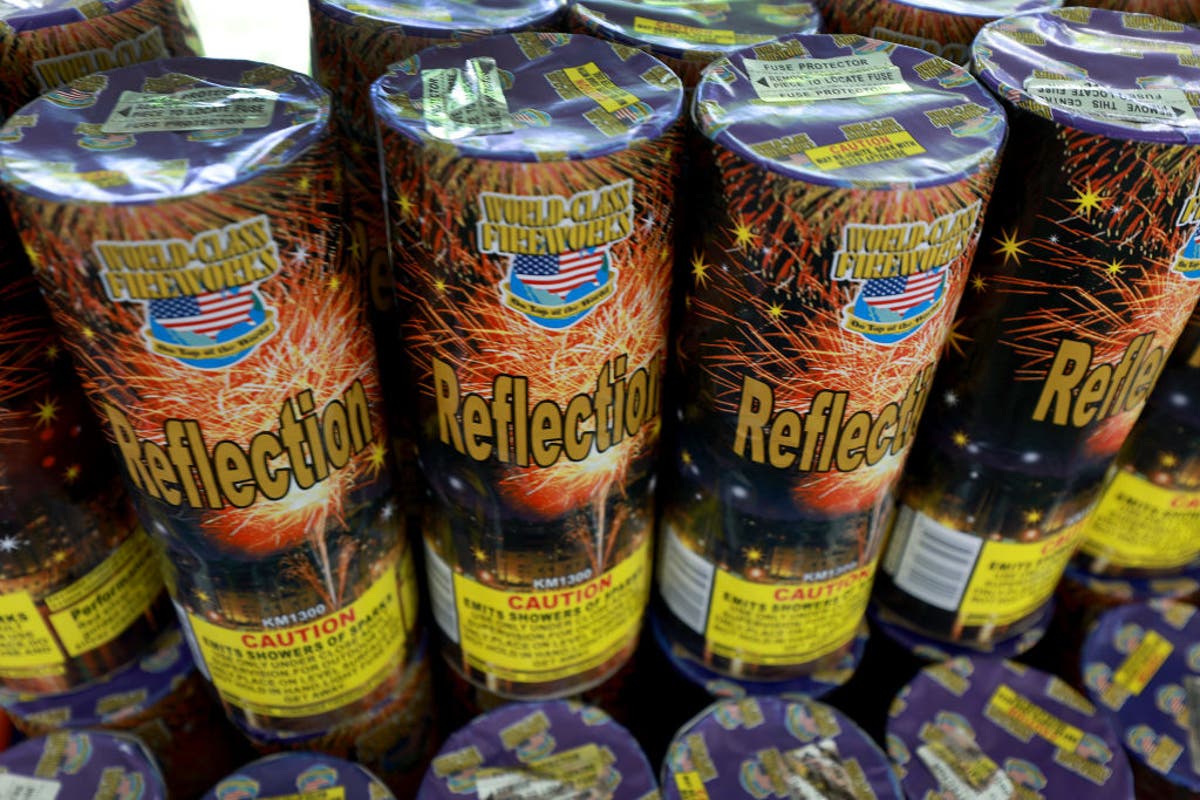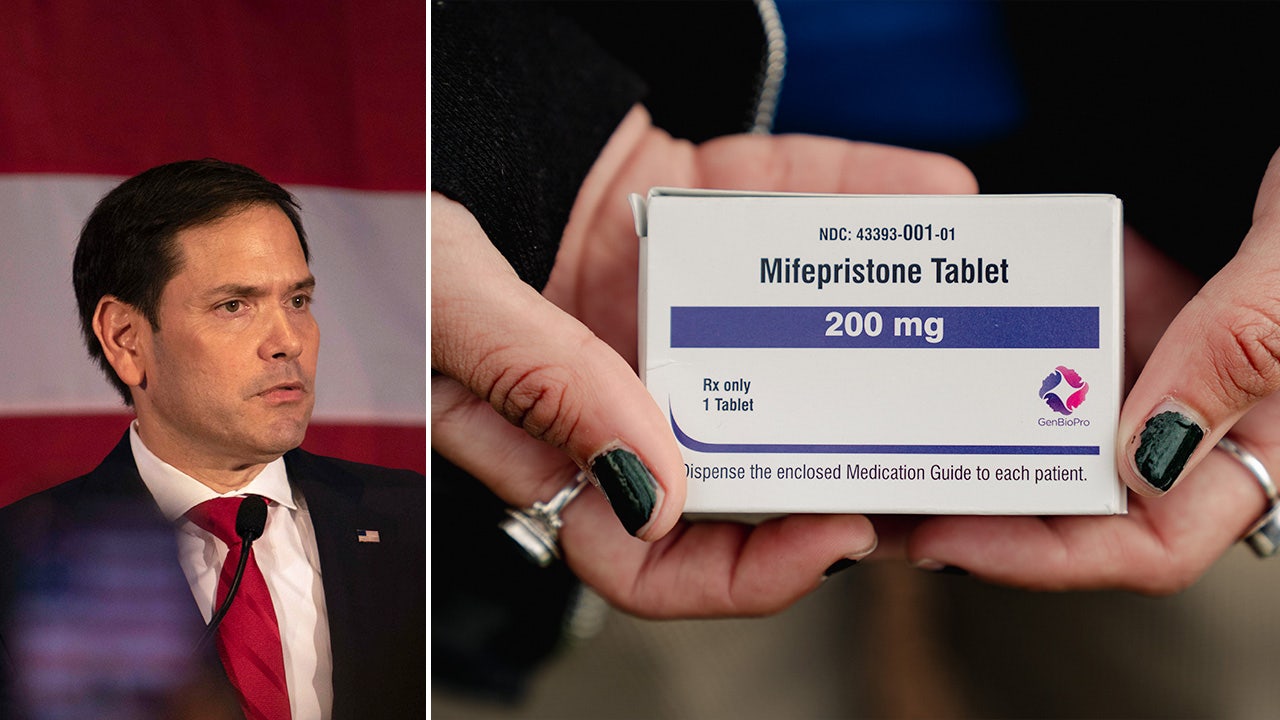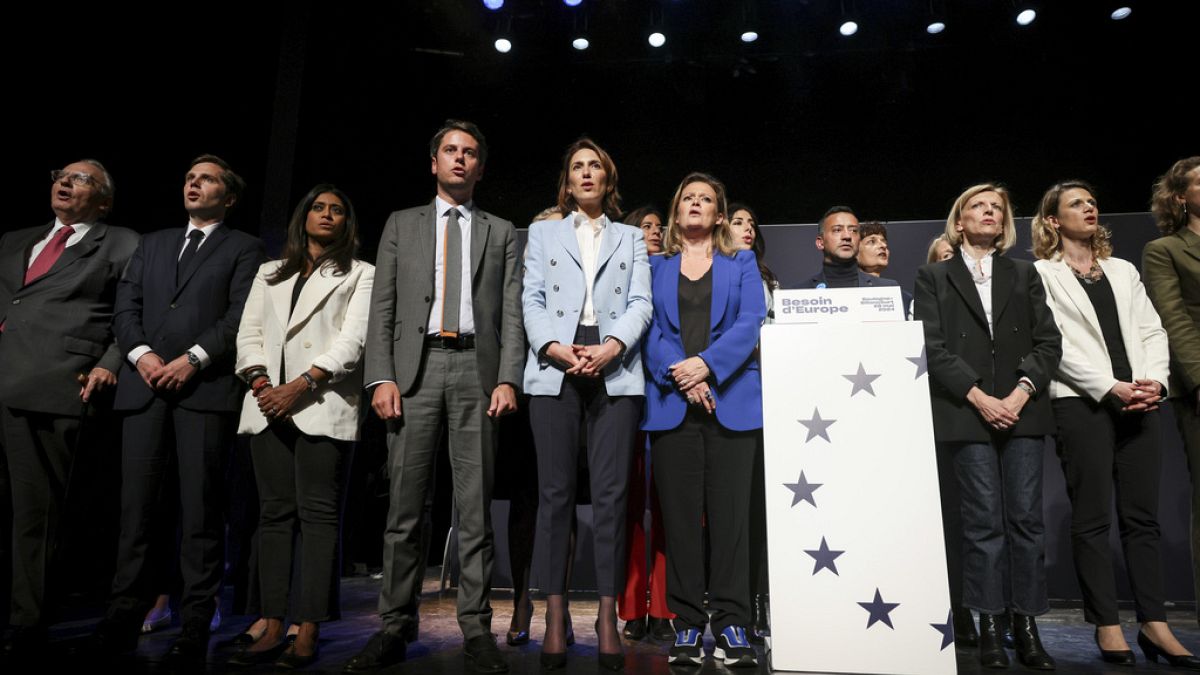Illinois
Illinois man critically injured as firework explodes in his face

A man was critically injured after a powerful firework exploded in his face as he was trying to determine why it hadn’t detonated.
The Lake County Sheriff’s Office responded to a gathering in the unincorporated community of Cary, Illinois, around 9.15pm on Sunday after it was reported that a 58-year-old man was injured while handling commercial-grade fireworks.
“He lit a firework, which did not detonate as expected,” the sheriff’s office said in a statement. “The man looked into the tube housing the firework and it discharged, striking his face and then exploding.”
When first responders arrived at the scene, the man was in and out of consciousness.
He was sent transported to Northwestern Medicine Hospital in critical condition.
The man, whose name was not released, then had to be airlifted to the Advocate Condell Medical Center in the neighbouring town of Libertyville.
Authorities said he had sustained major injuries to the head and remained in critical condition as of Monday.
The man reportedly did not have a permit to detonate the several fireworks he brought to the Fourth of July weekend gathering.
According to law enforcement, several unexploded fireworks were collected by sheriff’s deputies.
The explosives were then transferred to the Waukegan Bomb Squad for destruction.
The sheriff’s office said criminal charges are possible.
More than 10,000 people are injured while handling fireworks every year, according to NPR. Seventy-three per cent of those injuries around July 4.

Illinois
Delta skate? Lawmakers leave Springfield without regulating delta-8, other hemp products

Sellers of delta-8 THC, CBD and other hemp-derived products breathed a sigh of relief Wednesday as state lawmakers left Springfield without passing legislation that would effectively banned most of their sales.
But advocates on both sides of a contentious debate pitting Illinois’ multibillion-dollar cannabis industry against its growing hemp sector said they were disappointed to enter another summer without any regulations on intoxicating substances that remain easily accessible to young customers.
“We don’t want pop-up smoke shops opening on every corner,” said state Rep. La Shawn Ford, D-Chicago. “We need to make sure we have some licenses, and limit how many we have, so we don’t turn Chicago into ‘Delta and Marijuana City.’”
Ford was against the legislation that passed the Illinois Senate by a 54-1 vote over the weekend that would limit hemp-derived THC sales to state-licensed cannabis dispensaries, among other reforms.
Sales of pscychoactive products like delta-8 and delta-9 have boomed over the last few years at gas stations and convenience stores nationwide, thanks to a loophole in federal law that doesn’t restrict pot-like substances that can be extracted from hemp. High school students have been sickened in Chicago by such products, which don’t face stringent testing and labeling requirements.
The bill sponsored by state Sen. Kimberly Lightford, D-Hillside, would’ve cut out delta-8 sellers who haven’t gone through Illinois’ rigorous — and expensive — cannabis dispensary licensing process, but House members didn’t take up the bill by the end of a marathon spring budget session.
“After months of negotiations, the Senate passed a bipartisan bill that all sides agreed upon, further ensuring our common goal to have a fair, just and safe industry,” Lightford said in a statement. “The bill we put forth showed the dire need to regulate the hemp industry before we lose yet another young life to these pervasive products. It’s unfortunate the House could not meet the urgency.”
Lightford’s bill could be taken up by the House when members return to Springfield in the fall, though it would have a higher hurdle for approval. Bills passed after May 31 require a three-fifths majority.
Ford estimated support was well short of that threshold among his colleagues in the super-majority House Democratic caucus.
He’s pushing a separate bill that would limit sales to people 21 or older, require manufacturers to undergo product testing to obtain $500 licenses, impose a 10% tax rate on sellers and — most importantly, he said — allow current sellers to stay in the market.
“It’s not like we can get rid of it. You can’t ban something that’s grown like this,” Ford said. “Let’s not try to have an industry that directly competes with cannabis. Put this industry in its own lane, just like beer is in its own lane and rum and spirits are in their own lane.”
Jennifer Weiss, owner of the Roscoe Village wellness shop Cubbington’s Cabinet, said she was “extremely relieved” by the stalling of Lightford’s bill, which Weiss said also would have effectively outlawed the non-intoxicating CBD products she sells — and put her out of business.
“It would’ve benefited the big cannabis companies, but unfortunately not the hundreds, if not thousands, of small businesses that rely on hemp-based products,” Weiss said. “Now what we need are some good-faith negotiations with all the stakeholders at the table.”
Tiffany Chappell Ingram, executive director of the Cannabis Business Association of Illinois that pushed Lightford’s bill, said “we are disappointed the House failed to pass needed reforms to our state’s cannabis laws and will continue to allow synthetic hemp products that are sickening children and adults to be sold with no oversight.
“Despite overwhelming bipartisan support for these measures in the Senate, there is clearly more work to do to educate legislators about these important matters,” Chappell Ingram said in a statement.
Speaking at an end-of-session news conference, Gov. J.B. Pritzker said he thinks regulations would be “proper” but didn’t say whether he’d be in favor of a ban on sales beyond dispensaries.
“It’s clear that it’s not for medicinal purposes. It’s not regulated the way that cannabis is, and yet it ends up on the market, and there’s no restriction on who gets it [or] how much they can get,” Pritzker said. “I really believe that we need to step back and ask what is in the best interest of the health of kids and adults across the state.”
Illinois
Illinois House approves $53 billion spending plan, heads to Gov. Pritzker’s desk for signature

CHICAGO (CBS)—Illinois House lawmakers approved the proposed spending plan, which is said to be the largest in the state’s history.
The $53 billion budget was approved with a 65 to 45 vote in the early morning hours after it was passed by the state senate on Monday.
The now-approved budget includes more money for public schools, specifically $350 million in increased funding for schools throughout the state.
More money will also go toward reproductive health centers, with $2 million being committed to increasing security at those centers. Investments are also being made in shelters and other services of $182 million for new migrant arrivals from Texas.
The budget also includes adding 280 frontline DCFS workers to improve the well-being of children in Illinois.
Sportsbook, retailers, and other corporations seeing almost $750 million in tax hikes to raise more money for the state.
Democrats called the budget balanced, while state Republicans criticized an allotment of half a billion dollars to migrants and healthcare for undocumented people.
The budget will raise some taxes, but it will eliminate a 1% tax on groceries and will also add a child tax credit.
Pritzker, in a statement, said he believes it is “A balanced budget that uplifts the working families of Illinois, saves more money in our rainy-day fund, creates jobs, lowers taxes on small businesses, grows our economy, and continues our track record of fiscal responsibility.”
The over 3,000-page spending plan now heads to the Pritzker’s desk for his signature.
Illinois
House Democrats expected to vote on $53.1B budget as Republicans complains of overspending
SPRINGFIELD, Ill. (AP) — The Illinois House geared up Tuesday night to vote on a $53.1 billion state budget but planned to work into Wednesday to get the job done.
Legislative leaders expected that the House would adopt the plan which the Senate OK’d Sunday night. It’s $400 million more than Democratic Gov. J.B. Pritzker proposed in February and raises taxes and makes other tax code changes to generate $1.2 billion to fund it.
“This budget is balanced, responsible and fair,” House Speaker Pro Tempore Jehan Gordon-Booth, a Peoria Democrat, told the Executive Committee. “It invests in children, it invests in infrastructure, it also invests in our most vulnerable.”
Even though the Legislature has gone beyond its self-imposed adjournment deadline of May 24, lawmakers don’t expect conclusion until early Wednesday because of constitutional requirements on the number of days that legislation must be read publicly.
Republicans complained that Democrats, who control the Legislature, are spending beyond their means and not preparing for what many predict are lean years ahead. Deputy House Republican Leader Norine Hammond of Macomb said she found at least $1 billion in spending that would be pushed off to the following fiscal year.
There’s a $350 million increase for elementary and secondary education, as prescribed by a 2017 school-funding overhaul, but a reduction from what was requested by the state education board in federally mandated school operations. The budget puts an additional $75 million for early childhood education, meaning 5,000 more seats, Gordon-Booth said.
The proposal to provide $182 million to fund services for tens of thousands of migrants seeking asylum in the U.S., largely bused from Texas, where they cross the border. And it provides $440 million for health care for noncitizens.
It also pays the state’s full obligation to its woefully underfunded pension funds and chips in an additional $198 million to the so-called rainy day fund to for an economic downturn.
Gordon-Booth said the proposal is just 1.6% more than what will be spent this year. Rep. C.D. Davidsmeyer, a Jacksonville Republican, noted that the budget is now $20 billion more than a decade ago. He criticized the transfer of dedicated funds, such as $150 million from the road fund and $50 million from a fund to clean up leaking underground storage tanks to shore up public transit.
“I have a concerns that there are gimmicks in this budget that put us on a path to a giant collision in the future,” Davidsmeyer told Gordon-Booth. “I hope I don’t have to say, ‘I told you so’ when it happens.”
The business tax hikes in particular pushed the General Assembly past its adjournment deadline as lobbyists scrambled to limit the impact. But the spending plan raises $526 million by extending a cap on tax-deductible business losses at $500,000. There’s also a cap of $1,000 per month on the amount retail stores may keep for their expenses in holding back state sale taxes. That would bring in about $101 million.
And there would be $235 million more from increased sports wagering taxes and on video gambling. Pritzker wanted the tax, paid by casino sportsbooks, to jump from 15% to 35%, but it was set on a sliding scale from 20% to 40%.
Another Pritzker victory comes in the form of the elimination of the 1% tax on groceries, another of the governor’s inflation-fighting proposals. But because the tax directly benefits local communities, the budget plan would allow any municipality to create its own grocery tax up to 1% without state oversight.
And those with home-rule authority — generally, any city or county with a population exceeding $25,000, would be authorized to implement a sales tax up to 1% without submitting the question to voters for approval.
-

 Movie Reviews1 week ago
Movie Reviews1 week ago‘The Substance’ Review: An Excellent Demi Moore Helps Sustain Coralie Fargeat’s Stylish but Redundant Body Horror
-

 Culture1 week ago
Culture1 week agoFrom Dairy Daddies to Trash Pandas: How branding creates fans for lower-league baseball teams
-

 News1 week ago
News1 week agoRed Lobster files for bankruptcy after missteps including all-you-can-eat shrimp
-

 World1 week ago
World1 week agoPanic in Bishkek: Why were Pakistani students attacked in Kyrgyzstan?
-

 News1 week ago
News1 week agoThe states where abortion is on the ballot in November : Consider This from NPR
-

 Politics1 week ago
Politics1 week agoMichael Cohen swore he had nothing derogatory on Trump, his ex-lawyer says – another lie – as testimony ends
-

 News1 week ago
News1 week agoCity of Kyle falls short of ‘Kyle’ world record
-

 Politics1 week ago
Politics1 week agoAnti-Israel agitators interrupt Blinken Senate testimony, hauled out by Capitol police

















